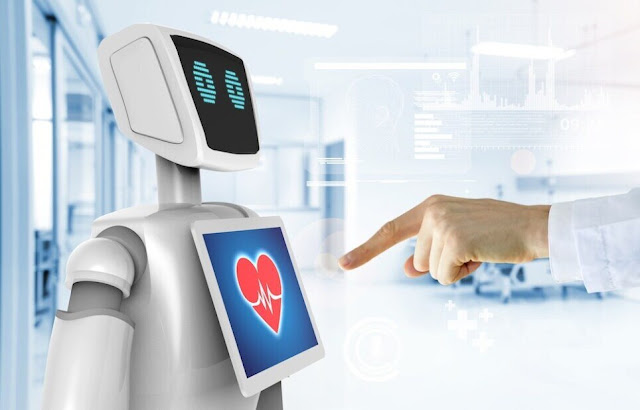In recent years,
healthcare chatbots have emerged as a transformative technology in the
healthcare industry. These artificial intelligence (AI)-powered virtual
assistants are revolutionizing the way patients interact with healthcare
providers, offering personalized and efficient support while reducing the
burden on healthcare systems. As we navigate the future of the healthcare
chatbot market, it's crucial to understand the underlying technology that
powers these virtual assistants and its potential implications.
|
Chatbot technology in
healthcare leverages natural language processing (NLP) and machine learning
algorithms to simulate human-like conversations with patients. NLP enables to
understand and interpret human language, extracting relevant information from
patient queries and providing appropriate responses. Advanced machine learning
algorithms allow to continuously learn and improve their performance over time,
enhancing their ability to address a wide range of patient needs. One of the key
advantages of healthcare chatbots is their ability to provide round-the-clock
support and instant responses to patient inquiries. They can handle routine
tasks such as appointment scheduling, medication reminders, and basic symptom
assessment, freeing up healthcare professionals' time to focus on more complex
cases. personalized recommendations based on a patient's medical history and
symptoms, improving the overall patient experience and healthcare outcomes. Another significant
benefit of technology is its potential to enhance patient engagement and
education can provide accurate and up-to-date information on various health
conditions, treatment options, and lifestyle recommendations. They can empower
patients to take an active role in managing their health and enable them to
make informed decisions. Furthermore, can offer emotional support to patients
by providing empathetic and compassionate responses, fostering a sense of trust
and companionship. The Global
Healthcare Chatbots Market was valued at US$ 200.9 Mn in
2022 and is forecast to reach a value of US$ 593.5 Mn by 2030 at
a CAGR of 14.5% between 2023 and 2030. The future of healthcare
chatbots holds immense promise. As the technology continues to evolve, we can
expect more sophisticated capable of performing complex medical tasks. For
instance, may assist in diagnosing common ailments, triaging patients based on
their symptoms, or even providing initial medical advice for minor conditions.
Additionally, can integrate with electronic health records, enabling seamless
information exchange between patients, healthcare providers, and other
healthcare systems. However, as with any
emerging technology, there are challenges that need to be addressed. One of the
primary concerns is maintaining data privacy and security. Healthcare handle
sensitive patient information, and stringent measures must be implemented to
safeguard this data from unauthorized access or breaches. Ethical
considerations also come into play, such as ensuring that adhere to medical
guidelines, m aintain transparency in their capabilities, and do not replace
human healthcare professionals entirely. Multifocal
Contact Lenses Market revolutionizing the way patients
engage with the healthcare system. Through advancements in NLP and machine
learning, offer personalized support, enhance patient education, and improve
overall healthcare outcomes. As we navigate the future of the healthcare
market, it is crucial to address challenges related to data privacy, security,
and ethical concerns. With the right approach, healthcare have the potential to
transform the healthcare industry and redefine the way we deliver and receive
healthcare services. |




0 Comments